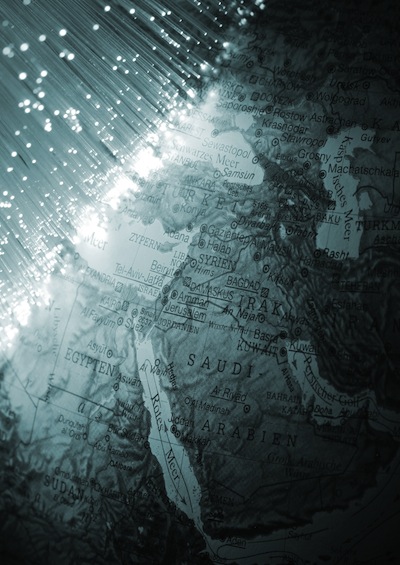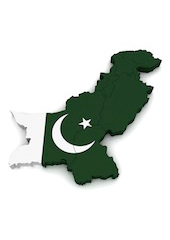Liberalism in the Arab World?
The trials and tribulations behind raising support for liberal policies in Egypt and beyond.
May 28, 2014

Egypt’s selection of a new strong man, Abdel Fattah el-Sisi, who will take over the presidency after a strained effort to mobilize unenthusiastic voters and who — if one looks at his rhetoric — seems to be even less inclined to exercise “liberalism” than even Hosni Mubarak did, certainly does not augur well for a future of more individual freedom in Egypt.
In fact, Sisi’s rhetoric demands that people sacrifice for Egypt. A recording of an off the record conversation caught the former general say, “People think I’m a soft man. Sisi is torture and suffering.”
Promoting liberalism in the Arab world is a Herculean task. It is no exaggeration to say that liberalism has an image problem here. Many, if not most Egyptians have a negative view of all things liberal.
Many perceive liberalism as against their heritage and culture and in contradiction with religious teachings.
The allegation that liberals and their ideas are inspired by outside forces and have no homegrown roots is probably the biggest challenge for liberals and liberalism in the Arab world today.
It is crucial that Arab liberals confront this allegation. To assert that the idea of individual freedom is foreign — and, therefore, not compatible with Arab cultural and religious beliefs — borders on racialism.
Anyone who holds this view suggests that the people living in this region are either not ready for liberty or — even worse — not capable or not willing to live as free men and women.
Arab liberalism
Promoting the ideas of freedom in Arab lands is not made easier due to the confusion about the very definition of liberalism. Importantly this is not limited to this part of the world at all.
In Europe, liberalism is understood as a set of (political) principles that aim at curbing the intrusion of the state into our citizen’s personal lives (and consequently also in the economy).
In the United States, liberalism has become a synonym of exactly the opposite. It stands for advocacy of state-sponsored spending and big government. Some North Americans even push liberals into one corner with leftists — socialists and communists.
Rule of law must come first
Most Arabs today have, at best, a limited exposure to liberal conditions as they grow up and live in a different environment. In most parts of the Middle East, the only “tangible” experience with liberalism is “economic liberalization”.
In many cases, however, the declared market reforms have failed to improve the living conditions and remained far below the expectations of the masses. Today, many Egyptians blame “market reforms” for the perceived wide-spread corruption and nepotism. That gives liberalism a bad name.
What they are not able — or not willing — to appreciate is that it is not the market system that has failed. The main reason for the absent “trickle-down” of wealth is the lack of the rule of law and accountability. These are essential preconditions for the markets to set free their beneficial power.
The Achilles heel of Arab liberalism
There are various other reasons for the weakness of liberalism in the Arab world. They are sociological, cultural and political. It is well established that many, if not most political parties claiming to be liberal are elitist and find it hard to have their message resonate “on the street”.
It is also no secret that many of these parties lack organizational clout and unity. Disunity and factionalism remains the Achilles heel of Arab liberalism. As long as this malady prevails, the liberal forces will remain far away from popular success and political power.
In the Arab world, as in other cultural environments, “liberal” is not an attractive brand name. It is no surprise that not a single political party in the Arab world uses this word in its name.
Re-branding
To help rectify this unfriendly image and promote a rational debate about liberal ideas and policies has been the main focus of my work in this part of the world.
We have organized myriad of educative activities and various campaigns to raise liberal awareness. I am particularly fond of a series of liberal books in Arabic in which mainly Arab liberals have published their thoughts.
Another priority throughout have been efforts to promote the cooperation between the liberal parties of the region. Many are not aware that liberal political parties and groups aspiring to promote a liberal agenda actually exist in more or less all Arab countries. They are particularly vocal with a distinguishable role in domestic politics in Morocco, Lebanon and Egypt.
Connecting Egypt to an international network
Today, many Arab liberal political parties are members of Liberal International, the world federation of liberal parties in London. They participate in their congresses and thus have a chance to promote also distinctly Arab causes in these international meetings.
Why is this important? Many challenges our societies face will never be solved on a national level. Regional and international coordination is essential. International relations should not be left exclusively to governments. Political parties and civil society should have a stake also.
For this, they need to cooperate. This is one raison d’etre for international organizations like the Arab Alliance for Freedom and Democracy (AAFD) or Liberal International (LI).
Understanding Egypt
More recently, the sense of harmony between liberals in the Arab world, particularly in Egypt, and their companions in Europe has suffered a blow. Differing assessments of the events in Egypt in the summer of 2013 are the main reason for the setback.
In a nutshell, liberals outside the Arab world have shown little understanding, let alone sympathy, for the conduct of the security forces against the Islamists. As a result, there exist profound differences of opinion between Egyptian and European liberals on how to deal with political Islam.
I share the European position that, in the long run, the problems facing Egypt (including the detestable terrorism) will only be solved in the context of a political process. Discussing these matters honestly and openly has become increasingly difficult.
Finding room for dialogue
In an environment governed by emotions fanned by nationalistic media, Egyptian interlocutors often expect unconditional support for their position and the authorities’ actions. This makes reasonable dialogue difficult. As a result, foreigners with a diplomatic inclination often simply avoid such interaction.
The exchange of ideas is always important — particularly in difficult times, like the ones we are in right now. This goes all the more for dialogues among liberals who intrinsically hold a common set of values.
Against this background, we have developed new programs that aim at bringing liberal leaders from Europe and the Arab world together to discuss issues of common interest and, hopefully, arrive at joint conclusions.
Editor’s note: For nearly eight years, from 2007 until now, a momentous time in the Arab world’s modern history, Ronald Meinardus headed the Cairo Office of the Friedrich Naumann Foundation for Liberty (FNF), Germany’s liberal think tank. This essay highlights some of his key insights from the political dialogue and exchanges he organized and participated in over this period.
Takeaways
Can individual freedom be a "foreign" idea?
To thrive, liberals in the Arab world today must fight allegations that liberal ideas have no homegrown roots.
An expert on Egypt and liberalism explains why the latter finds trouble at every turn in the Arab world.
Many Egyptians perceive liberalism as against their heritage, culture and religious teachings.
Read previous

Why the Taliban Thrive in Pakistan
May 28, 2014
